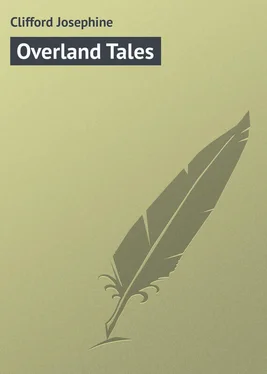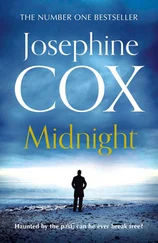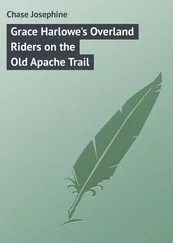Josephine Clifford - Overland Tales
Здесь есть возможность читать онлайн «Josephine Clifford - Overland Tales» — ознакомительный отрывок электронной книги совершенно бесплатно, а после прочтения отрывка купить полную версию. В некоторых случаях можно слушать аудио, скачать через торрент в формате fb2 и присутствует краткое содержание. ISBN: , Жанр: foreign_prose, foreign_adventure, на английском языке. Описание произведения, (предисловие) а так же отзывы посетителей доступны на портале библиотеки ЛибКат.
- Название:Overland Tales
- Автор:
- Жанр:
- Год:неизвестен
- ISBN:http://www.gutenberg.org/ebooks/42308
- Рейтинг книги:5 / 5. Голосов: 1
-
Избранное:Добавить в избранное
- Отзывы:
-
Ваша оценка:
- 100
- 1
- 2
- 3
- 4
- 5
Overland Tales: краткое содержание, описание и аннотация
Предлагаем к чтению аннотацию, описание, краткое содержание или предисловие (зависит от того, что написал сам автор книги «Overland Tales»). Если вы не нашли необходимую информацию о книге — напишите в комментариях, мы постараемся отыскать её.
Overland Tales — читать онлайн ознакомительный отрывок
Ниже представлен текст книги, разбитый по страницам. Система сохранения места последней прочитанной страницы, позволяет с удобством читать онлайн бесплатно книгу «Overland Tales», без необходимости каждый раз заново искать на чём Вы остановились. Поставьте закладку, и сможете в любой момент перейти на страницу, на которой закончили чтение.
Интервал:
Закладка:
Keenly the dark eyes of the Spaniard studied the lovely face, flushed, as it seemed, with the pleasure derived from the drive in the pure air and the golden sunshine.
"You like our Valley?" he asked, as eagerly as though she were a capitalist to whom he intended selling the most worthless portion of his ranch at the highest possible figure.
"Not the Valley so much as the mountains," she returned. "We have had fogs two days out of the week I have spent here, and I fancy I could escape that if I could get to the top of the mountains."
"Ah! you like the sunshine and the warm air. You must go farther South then – far South. I have thought a great deal of going there myself. There is a beautiful rancho which I can buy – you would like it, I know, – far down and close by the sea. And the sea is so blue there – just like the heavens. Oh! you would like it, I know, if you could only see it," he concluded, enthusiastically, as though this were another ranch he was trying to sell her.
But the thought of traffic or gain was very far from his heart just then, though Don Pedro was known to be an exceptionally good business man and a close financier. Many of his Spanish compeers looked up to him with a certain awe on this account. Most of them had parted with their broad acres, their countless herds, all too easily, to gratify their taste for lavish display and easy living, with its attendant cost under the new American régime ; or had lost them through confiding, with their generous heart, their guileless nature, to the people whose thoughts were bent on securing, by usury and knaves' tricks, the possessions of the very men whose hospitable roof afforded them shelter. "He can cope with any American," they would say, proudly, speaking of Don Pedro; and Don Pedro would show his appreciation of the compliment by exercising his business qualifications towards them, as well as towards "los Americanos."
But the haughty Don was well-mannered and agreeable; and after securing from Nora an indefinite promise that she would some time, when her ankle got strong, ride his own saddle-horse, he left the ladies safely at their door and retired, his heart and brain filled with a thousand happy dreams. He had only once during the ride pointed carelessly across the valley to where his ranch lay; but Nora had gained no definite idea of its extent.
One pleasant afternoon the two sons of Don Pedro stopped at the door. Their father had encouraged them to call, they said; perhaps the lady and her sister would bestow upon them the honor of driving out with them for an hour. Both lads spoke English with elegance and fluency (let the good fathers of the Santa Clara College alone for that), but among themselves their mother-tongue still asserted itself; and in their behavior a touch of the Spanish punctilio distinguished them favorably from the uncouth flippancy of some of their young American neighbors.
Nora cheerfully assented, and in a few minutes the whole party was bowling along, – the eldest brother driving, the younger explaining and describing the country and its peculiarities. Pablo and Roberto had both been born on their ranch, though not in the large white house they saw in the distance. That had been finished only a little while when their mother died. The adobe which had been their birthplace stood several miles farther back, and could not be seen from here.
"It is not on this ranch, then?" queried Nora.
"Pardon, yes; on this ranch, but several miles nearer the foothills; in that direction – there."
"And is the land we are passing over all one ranch?" Nora continued, persistently.
"We have been driving over our own land almost since we left town," replied Pablo, a little proudly. "San Jacinto is one of the largest ranchos in the county, and the Americans have not yet succeeded in cutting it up into building-lots and homestead blocks," he added, laughing a frank, boyish laugh, which seemed to say, "you are as one of us, and will not take it amiss."
Sister Anna looked stealthily at Nora, but her eyes, with a strange light in them, were fixed on the horizon, far off, where they seemed to read something that made her brow contract and lower a little while, and then clear off, as, with an effort, she turned to the boy and brought up some other topic of conversation. But her heart was not in what she said, and Sister Anna exerted herself to cover the deficiencies that Nora's drooping spirits left in the entertainment.
It was sunset when they reached home, and standing on the rose-covered veranda of the little cottage a moment, Nora looked across to where the lingering gleams of the sun were kissing the black-looming crown of the Loma Prieta, with floods of pink and soft violet, and covering all its base with shades of dark purple and heavy gray. She raised her clasped hands to the mountain top.
"How glad, how thankful I could be, if from the wreck and the ruins I could gather light and warmth enough to cover my past life and its miseries, as the pink and the purple of the sunset cover the black dreariness of yon mountain."
"Come in, Nora, it is getting cold," interrupted Sister Anna; "or the next thing after having your nerves wrought up so will be a fit of hysterics."
"Which, you will say, is one more of the bad effects of Nora's unhappy marriage."
If Nora's wilfulness and Nora's unhappy marriage had been ever so deeply deplored by her, the loss of Sister Anna's love, or Anna's sisterly kindness, could not be counted among its many bad effects. Brother-in-law Ben, too, was whole-souled and affectionate; more practical, and a trifle more far-seeing than Anna; but he never said, "I told you so." He quietly did all he could to bind up bleeding wounds.
It soon came to be looked upon as quite a matter of course that Don Pedro should be seen in his carriage with the two sisters; or, that his black steed should be led up and down before the cottage door, by one of his servants, dark of skin, fiery-eyed, and of quiet demeanor, like his master. Then, again, the sons were seen at the cottage, always courteous, attentive, and scrupulously polite. If in the privacy of their most secret communings the "Gringa" was ever spoken of as the Gringa, it was only in the strictest privacy. Neither to Nora, nor to any of their servants, did ever look or word betray but that in the fair young American they saw all that their widowed father desired they should see.
The retinue of the Whitehead family consisted of but a single Chinaman, who was cook, laundress, maid-of-all-work; but during Nora's stay she was never aware but that she had half-a-dozen slaves to do her bidding, so careful, yet so delicate was Don Pedro in bestowing his attentions. He soon hovered about the whole family like one of the genii . If Nora just breathed to herself, "How pleasant the day is – if we only had carriage and horses" – before the hour was over the Don, with his carriage, or Don Pedro's boys, or an invitation to ride from the Don, was at hand. Before she had quite concluded that fruits were not so abundant or fine in the country as in the city markets, the Don had contracted a pleasant habit of sending his servants with the choicest of all his fields and store-houses contained to the little cottage in town. Fish, fresh from the Bay of Monterey, and game, that plain and mountain afforded, came in the run of time, quite as a matter of course, to the kitchen and larder of Don Pedro's dear friend Whitehead. It was not to be refused. Don Pedro had a hundred points of law that he wished explained; had so much advice to ask in regard to some tracts of land he meant to purchase, that Brother-in-law Ben always seemed the one conferring the greatest favor.
It was a little singular, too, this friendship of the Don's for Lawyer Whitehead. As a general thing, the Spanish population of California look upon our lawyers with distrust, and have a wholesome horror of the law. Don Pedro, though liberal-minded and enlightened, was not backward in expressing the contempt he felt for many of our American views and opinions; but above all he abominated our most popular institution – the Divorce Court. Not as a Catholic only, was it an abomination to him, he said. He had often declared to see a divorced woman gave him the same shuddering sensation that was caused by looking upon a poisonous snake.
Читать дальшеИнтервал:
Закладка:
Похожие книги на «Overland Tales»
Представляем Вашему вниманию похожие книги на «Overland Tales» списком для выбора. Мы отобрали схожую по названию и смыслу литературу в надежде предоставить читателям больше вариантов отыскать новые, интересные, ещё непрочитанные произведения.
Обсуждение, отзывы о книге «Overland Tales» и просто собственные мнения читателей. Оставьте ваши комментарии, напишите, что Вы думаете о произведении, его смысле или главных героях. Укажите что конкретно понравилось, а что нет, и почему Вы так считаете.












